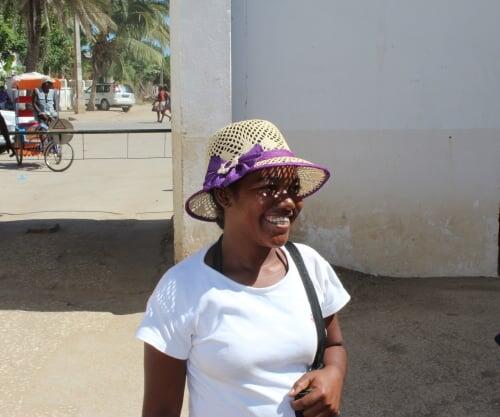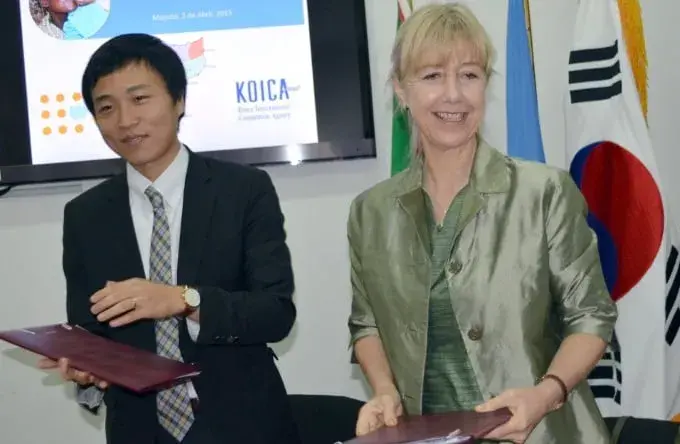TULÉAR, Madagascar — In Madagascar, too many women still die from complications related to pregnancy and childbirth, or end up severely disabled. The country has reduced maternal mortality since 1990; however, the ratio remains high and is currently at 498 per 100,000 live births.
Every day, 10 women die from complications related to pregnancy and childbirth in Madagascar. Thousands of Malagasy women and girls also suffer from obstetric fistula, with an estimated 2000 womendeveloping afistula each year in the country.
Sophia, now 20, was forced by her parents to marry a boy who was one year older when she was 14 years old. Despite a new law passed in Madagascar in 2007 which set the age limit for marriage at 18 years for girls and boys alike, traditional marriage customs still persist.
Two years into her marriage, Sophia became pregnant and during labour she endured complications. “I had to be evacuated by car to a city five hours away from my village. My delivery lasted for a week,” she says. As a result of the obstructed labour, Sophia’s baby was stillborn and to save her life, the surgeon had to remove her uterus. Shortly after the delivery, she discovered that she was also suffering from fistula, the most devastating of all childbirth injuries.
When she was diagnosed with fistula, her husband abandoned her and she had to return to live with her parents. “My parents-in-law told my husband that I was useless. He left me soon after I was diagnosed. Now he has married another woman.”
This tragedy could have been avoided if all Malagasy women received assistance from skilled health personnel such as a midwife during childbirth and had access to emergency obstetric care. Only 44 per cent of Malagasy women receive assistance from a health professional during childbirth and only 35 per cent of deliveries take place in health facilities. Weak infrastructure, referral systems and equipment, and lack of qualified staff, make access to health care especially difficult in rural areas.
Last year, Sophia’s uncle was made aware that the hospital in Tuléar, a city in south-western Madagascar, repairs obstetrical fistula. In November 2012, when Sophia was 20, she underwent reconstructive surgery as a part of the Campaign to End Fistula, a joint initiative between the Ministry of Public health and UNFPA.
“After the surgery, I was so happy. My friends have come back to me. I’m not sick anymore,” she says.
Each month, several women and girls suffering from fistula come to the hospital in Tuléar to seek help, but unfortunately the surgeon cannot operate on them all. Indeed, many patients cannot afford the cost of the surgery. “Sometimes, the family of the fistula patient looks for money before bringing the woman to the hospital, but in many cases they do not have the means necessary,” says the surgeon.
However, since 2011, 247 Malagasy women suffering from fistula have received reconstructive surgery free of cost through the UNFPA-supported Campaign to End Fistula. In Madagascar, only six health-care facilities are able to perform fistula surgery, due to the limited number of health-care professionals with the necessary skills.
The surgeon who repaired Sophia is one of 14 surgeons who were trained to perform fistula surgery during the first national campaign to End Fistula supported by UNFPA in 2011.
Sophia now lives with her grandparents in Tuléar. “I don’t want to be isolated and inactive any longer; I would like to become a seller,” she says.



